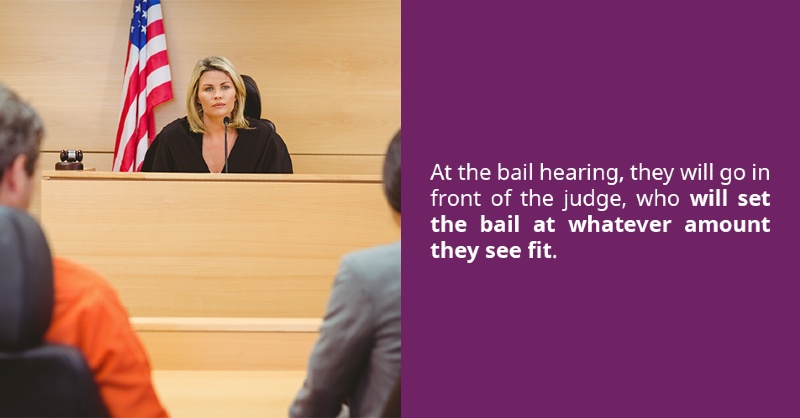
How Is Bail Set?
Written on January 3, 2022. Posted In Uncategorized
Your loved one is under arrest. They’re sitting in jail. They’ll see the judge Monday morning, and you want them out as soon as possible. Unless you have a stockpile of money, a bail bond is probably the answer. You have heard of bail bondsmen, but the question on your mind right now is, “How Is Bail Set?”
Establishing Basic Bail Amounts
There is much to consider when posting bail — how bail works and how bail amounts are determined by a judge. At the bail hearing, they will go in front of the judge, who will set the bail at whatever amount they see fit. The defendant must usually put up their own money or pay a bail bondsman to be released.
Understanding the Bail Amount
Some municipalities, in larger cities, have a schedule of bail for non-violent crimes, such that every defendant pays the same bail amount for each crime. Once that amount is paid, the defendant is released from custody. In most places, however, you are at the judge’s mercy.
To decide the bail, a judge considers several factors, like:
- The severity of the alleged crime
- Risk of flight
- Criminal history
- Degree of danger to the community
- Extenuating circumstances
- Defendant’s attitude
Getting Released
A defendant may be released after their bail bondsman submits a surety bond to the court, but there are other ways they can be released, as well. If the judge feels the defendant does not pose a flight risk, they may be released without bail upon promising they will appear at all their court proceedings. This is called being released on their own recognizance. Other times, bail is based on an agreement that the defendant will behave in a particular way, such as “they will not contact their ex-wife,” who was their alleged victim.
Understanding Excessive Bail Amounts
Bail may be used only to guarantee that the accused shows up for their court proceedings. It cannot be used to make money for the government, and certainly not as a punishment, since the accused has not yet been found guilty of a crime. These rules are understood to be part of the Eighth Amendment, which states that “Excessive bail shall not be required…” In cases like assault, rape, and murder, or serious drug crimes, though, judges sometimes work around this law a bit.
Lowering Bail Amounts
Sometimes, the judge sets bail at a reasonable amount, and the defendant is still unable to come up with the bail money. In these situations, the accused is able to ask for a special bail hearing, at which they will ask the judge to lower the bail; however, it is still up to the judge to decide the amount.
At Free at Last Bail Bonds, we understand the importance and urgency of reuniting families. If you or a loved one needs our services, we are here for you 24 hours a day at 470-410-3409.


